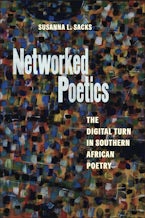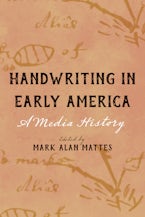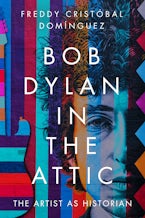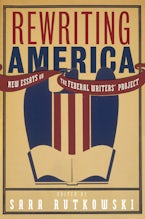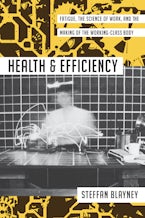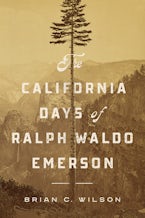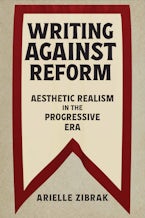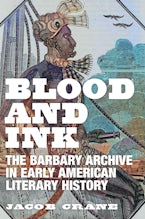- Home
- Inventing the Addict
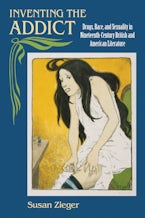
Inventing the Addict
Drugs, Race, and Sexuality in Nineteenth-Century British and American Literature
by Susan Zieger
Published by: University of Massachusetts Press
320 Pages, 6.00 x 9.00 x 0.70 in
Other Retailers:
The notion of addiction has always conjured first-person stories, often beginning with an insidious seduction, followed by compulsion and despair, culminating in recovery and tentative hope for the future. We are all familiar with this form of individual life arrative, Susan Zieger observes, but we know far less about its history. "Addict" was not an available identity until the end of the nineteenth century, when a modernizing medical establishment and burgeoning culture of consumption updated the figure of the sinful drunkard popularized by the temperance movement.
In Inventing the Addict, Zieger tells the story of how the addict, a person uniquely torn between disease and desire, emerged from a variety of earlier figures such as drunkards, opium-eating scholars, vicious slave masters, dissipated New Women, and queer doctors. Drawing on a broad range of literary and cultural material, including canonical novels such as Uncle Tom's Cabin, The Strange Case of Dr. Jekyll and Mr. Hyde, and Dracula, she traces the evolution of the concept of addiction through a series of recurrent metaphors: exile, self-enslavement, disease, and vampirism. She shows how addiction took on multiple meanings beyond its common association with intoxication or specific habit-forming substances—it was an abiding desire akin to both sexual attraction and commodity fetishism, a disease that strangely failed to meet the requirements of pathology, and the citizen's ironic refusal to fulfill the promise of freedom.
Nor was addiction an ideologically neutral idea. As Zieger demonstrates, it took form over time through specific, shifting intersections of gender, race, class, and sexuality, reflecting the role of social power in the construction of meaning.
In Inventing the Addict, Zieger tells the story of how the addict, a person uniquely torn between disease and desire, emerged from a variety of earlier figures such as drunkards, opium-eating scholars, vicious slave masters, dissipated New Women, and queer doctors. Drawing on a broad range of literary and cultural material, including canonical novels such as Uncle Tom's Cabin, The Strange Case of Dr. Jekyll and Mr. Hyde, and Dracula, she traces the evolution of the concept of addiction through a series of recurrent metaphors: exile, self-enslavement, disease, and vampirism. She shows how addiction took on multiple meanings beyond its common association with intoxication or specific habit-forming substances—it was an abiding desire akin to both sexual attraction and commodity fetishism, a disease that strangely failed to meet the requirements of pathology, and the citizen's ironic refusal to fulfill the promise of freedom.
Nor was addiction an ideologically neutral idea. As Zieger demonstrates, it took form over time through specific, shifting intersections of gender, race, class, and sexuality, reflecting the role of social power in the construction of meaning.
Susan Zieger is assistant professor of English at the University of California, Riverside.
"Inventing the Addict is full of excellent things. It not only makes an important contribution to the field of addiction studies and many other areas of present interest in cultural, social, and material studies, it also functions partly as a summary and synthesis of much current work in nineteenth-century civilization."—Marty Roth, author of Drunk the Night Before: An Anatomy of Intoxication
"Inventing the Addict is a richly contextualized and elegantly nuanced cultural history of the concept of addiction. Susan Zieger shows how literary critical analysis offers particular insight not only into the power of language and narrative to shape public perceptions, but also into the complex social construction of ostensibly medical problems."—Priscilla Wald, author of Contagious: Cultures, Carriers, and the Outbreak Narrative
"An important book for both Americanists and students of Victorian Britain, Inventing the Addict traces the historical development of the idea of addiction as a specific complication of the history of subjectivity in the nineteenth-century. Zieger organizes her study around the main metaphors for the developing concept of addiction and thereby brings the literary and non-literary works she analyzes into close alignment on a formal plane."—Catherine Gallagher, author of The Body Economic: Life, Death and Sensation in Political Economy and the Victorian Novel
"A compelling and wide-ranging investigation into drugs, race, and sexuality as they are represented in nineteenth-century American writings. An important book for Americanists. . . . Demonstrates how the addict became slave-masters and drunkards. The merging of ideas and themes in both literacy and non-literary works offers powerful representations of the social and cultural experiences of the period, and excellent notes supplement this fascinating study."—The Year's Work in English Studies
"This book is filled with critical insights and buttressed by wide reading in primary and secondary sources."—Victorian Studies

